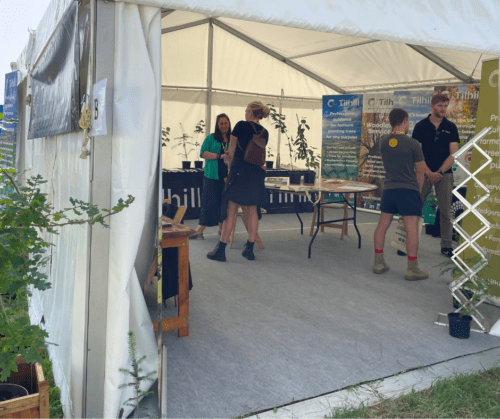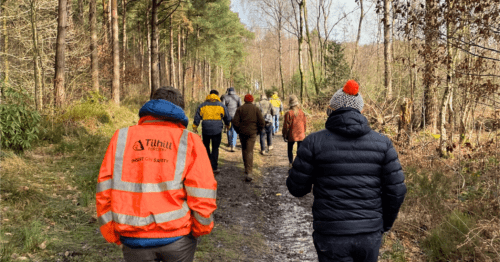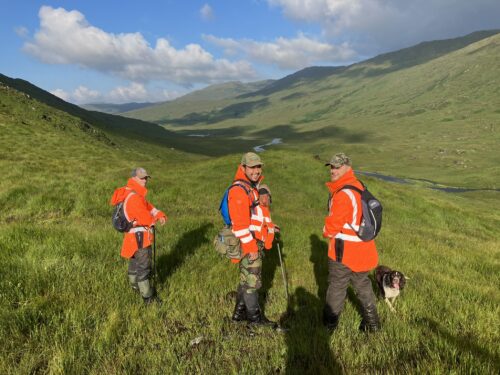Embarking on the path towards becoming a forest manager can seem incredibly daunting. It’s not just trees you need to know about (and they’re complicated enough!); you also need to be a tightly organised project manager, know how to specify the right type of forest road, understand deer stalking best practice, identify the breed of sheep that may have snuck into your woodland creation site so that you can notify the correct farmer – the list of knowledge and competencies sometimes seems never-ending.
The Tilhill Forestry Graduate Programme
As an Assistant Forest or Harvesting Manager, Tilhill Forestry provides individuals with the space to learn the myriad of skills needed to become a competent manager. Alongside learning by doing (i.e. carrying out site supervision and assisting with the paperwork associated with each site), Tilhill Forestry organises an array of training courses and looks to match new starters with a mentor from a different part of the business.
Plus, a great feature of being part of a large forestry company is the ability to call upon expertise, such as telephoning a manager in the northwest Highlands to discuss how best to manage rhododendron or witnessing first-hand the effectiveness of Trico (a deer repellent made from sheep’s fat) at keeping deer off young trees in a colleague’s forest in Devon.
By no means has everything been plain sailing: there have been challenging sites, changes in my area team, and getting my car spectacularly stuck in a ditch within the first month of starting (a kind contractor took pity and towed me out). But even these challenges are useful learning experiences and personal development.
The latest recruitment of Assistant Forest and Harvesting Managers is Tilhill’s most diverse Graduate Programme intake to date. As well as recent grads, there are individuals switching from careers in the NHS, teaching, the arts and veterinary medicine. I caught up with three of them to find out how they have been getting on. Here’s what they have to say:

- Claire, Assistant Forest Manager
“Having spent a large part of my career working in mental health services, I used to prescribe woodland walks and time in green space to promote recovery; now I support the management of those important spaces and always have in mind the wider utility of the work we do and the benefits to the public, and society more broadly.”

- Dani, Assistant Forest Manager
“It was a very daunting prospect leaving a career which I had completed years of study and post graduate training to become confident and capable at. The idea of learning an entirely new profession was both exciting and nerve-wracking. When joining Tilhill I was pleased to learn that I wasn’t alone coming into forestry as a second career, and I have been given the opportunity to complete inhouse training as well as further formal education to develop my knowledge.”

- Joseph, Assistant Forest Manager
“Changing careers from teaching to forestry is quite the change, but the transferable skills I have learnt in communicating with different people have really helped so far. Tilhill is providing a great balance of educational but challenging work to help meet the requirements of a professional forester.”
Forestry Careers
I decided to write this blog post to hopefully demonstrate that a switch in career to forestry is not only possible but there are people and systems in place at Tilhill to support individuals eager to work in the green economy.
There is a concerning skills shortage in the forestry sector (highlighted by the Institute of Chartered Foresters in 2021), so if you’re willing to get stuck in and learn from others then I’d say Tilhill is a place for you!

Olivia visiting a primary school to promote STEM forestry careers
Apply for the Tilhill Graduate programme
Find out more




